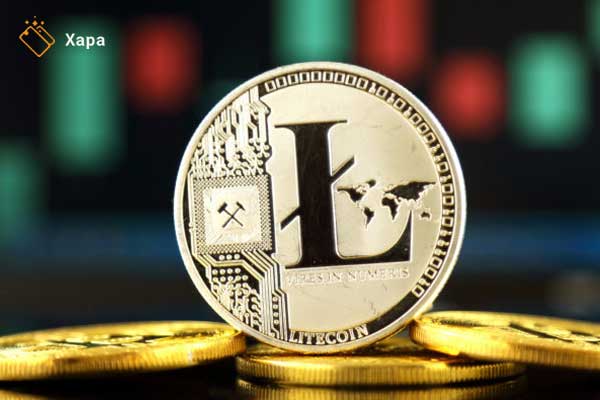
About Litecoin
For answer the question that what is Litecoin classic and for understanding more about Litecoin, we should explain some points at first. While the identity of Satoshi Nakamoto, the creator of Bitcoin, is still unknown after about 10 years, the creator of Ethereum Litecoin is a young Chinese-born man named Charlie Lee. A former employee of Google and Kevin Base, in 2011 with major changes in the Bitcoin protocol, introduced Litecoin network and this would be help us to answer the question that what is Litecoin classic.
Furthermore, There is an interesting philosophy for the birth of Litecoin which it is important thing about Litecoin. If Bitcoin is gold, Litecoin, like its logo, is reminiscent of silver. This means that Ethereum Litecoin aims to create currency for more every day and cheaper purposes which it is golden key to solve the puzzle that what is Litecoin. Like Bitcoin, Litecoin is limited, assuming that, unlike Bitcoin, of which only 21 million can be produced, Litecoin will be mined up to 84 million units.
Litecoin History
On November 26, 2011, a former Google employee named Charlie Lee became acquainted with the world of digital currency and created the Fairbrix. Despite Charlie’s efforts, this cryptocurrency was not valid and that is a important level in Litecoin history.
October 7, 2011 – 11 days after a failed attempt, Charlie Lee successfully designed and presented Ethereum Litecoin. October 13, 2011 – Litecoin Network made available to the public which we may consider this as a golden key for solve the Litecoin history puzzle.
How does Litecoin work?
Just like Bitcoin, miners secure their network by performing mathematical calculations by placing their computers’ computing power on the network. Miners do this to verify and verify transactions, which saves the network. All digital currencies use a special algorithm for activity. The bitcoin algorithm is SHA-256, but Charlie Lee changed the process to a better algorithm called Scrypt in creating Ethereum Litecoin. This algorithm has an easier calculation, less workload, and therefore the ability to confirm transactions faster than the Bitcoin algorithm. While cost-effective bitcoin mining is only possible with ASIC devices these days, graphics cards are still one of the most common ways to mining Litecoins. Of course, using ASIC devices is more cost-effective than the graphics card method.
Every 2.5 minutes, all approved Litecoin transactions are placed in digital packages called blocks. These blocks are added to a chain of blocks called the Chinese block. Miners, or miners, are rewarded for doing so. In addition to the commissions, each block is mined to generate a new amount of Ethereum Litecoin and is awarded to the miner who mined that block, which is called a Block Reward.
The reward for mining each block is currently 25 Litecoin units. This bonus will be halved for every 840,000 blocks. The Bitcoin block bonus is currently 12.5 Bitcoin units and is halved for every 210,000 blocks.
What is Litecoin used for?
For answer the question that what is Litecoin used for, as mentioned, we should note that Ethereum Litecoin is very similar to Bitcoin. This similarity can be seen in the performance of this digital currency. In fact, with it, we can send and receive money whenever and wherever we are which this is important factor for understanding what is Litecoin used for.
What is Litecoin Mining?
For answer the question that what is Litecoin mining, at first you should know that since Litecoin uses a proof-of-work algorithm, it is minable. As mentioned above, Ethereum Litecoin algorithm is Scrypt, so to mining, you must use devices that support this algorithm.
Moreover, for understanding that what is Litecoin mining, you should know that there are currently many mining devices that are mining the Litecoin currency code. As the hardness of the Ethereum Litecoin network increases, most miners use ASIC devices or miners with higher hash rates. Innosilicon Company is one of the manufacturers of Litecoin mining devices.
Litecoin Mining as the third most valid digital currency has attracted many users. Ethereum Litecoin Mining can be done either individually or by joining an mining pool or through cloud mining.
For understanding that what is Litecoin staking, we have to note that individual mining is suitable for users who can provide all the mining equipment and devices and can also provide the amount of electricity consumed. For more explanation of what is Litecoin staking, As you know, mining has the equipment and consumes a lot of electricity. Individual mining is very full It is a cost, but instead all the reward that comes from mining goes to the person and there is no need to share it with another miner. But in the method of joining an mining pool, miners share the processing power and the cost of their electricity helps to solve the equations. In this method, the more power is created, the more chances for miners to receive rewards. In some pools, miners receive rewards based on the amount of processing power and power consumption. Of course, you need to know that you have to pay a certain amount to join the mining pools. In your cloud mining method, the mining rig performs all the activities by paying a fee. The higher the number of these computers, the higher the mining rate. Cloud mining is suitable for METDI users because there is no need to pay for equipment and electricity.
Litecoin price history
Litecoin, abbreviated LTC, is a digital currency, or form of digital asset, with a market value of about $ 12.44 billion, ranking 9th and accounting for 0.78% of the total market.
Light Bitcoin, like Bitcoin, started at around 1 cent. The currency had a very good price growth until 2014, but after that, it experienced a significant price decrease and went up and down in the price range of 1 to 4 dollars for about three years. 2017 was the time of the Ethereum Litecoin mining. While Bitcoin grew by about 1,700 percent in 2017, Litecoin rose 7,000 percent to its all-time high of $ 320.
After this tremendous growth, the price of Litecoin gradually dropped, and today (February 4, 1996), as we are updating this article, the price of each unit of Ethereum Litecoin is about $ 140. Like Bitcoin, the acceptance and use of Litecoin are directly related to its price increase. In 2017, increasing public awareness in the field of digital currencies and the expansion of Chinese block currencies led to a sharp rise in prices of all currencies at the top of the table. Many companies, including some gambling sites, accepted Litecoin as a payment method, which did not go unnoticed.
According to the Ethereum Litecoin price chart taken from the CoinMarketCap website, since mid-2018, the price of this digital currency has been on a downward trend. This process lasted until early 2019 and then had an upward trend until the publication of this training.
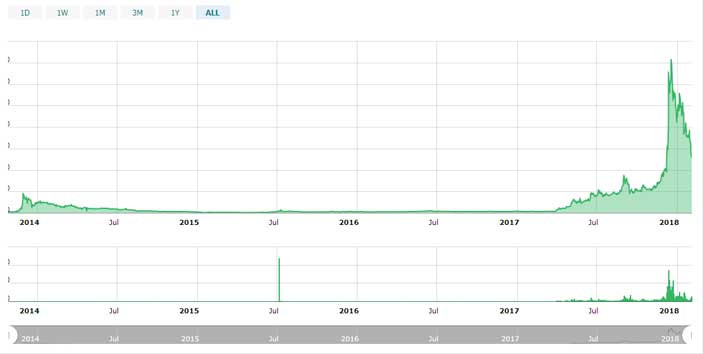

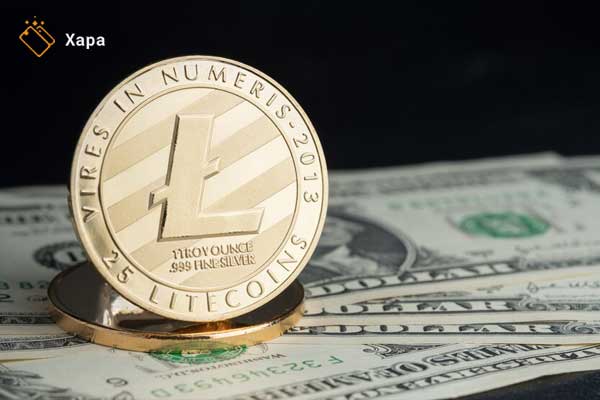
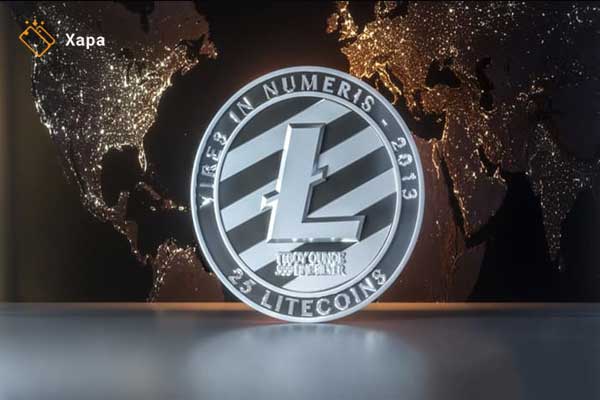
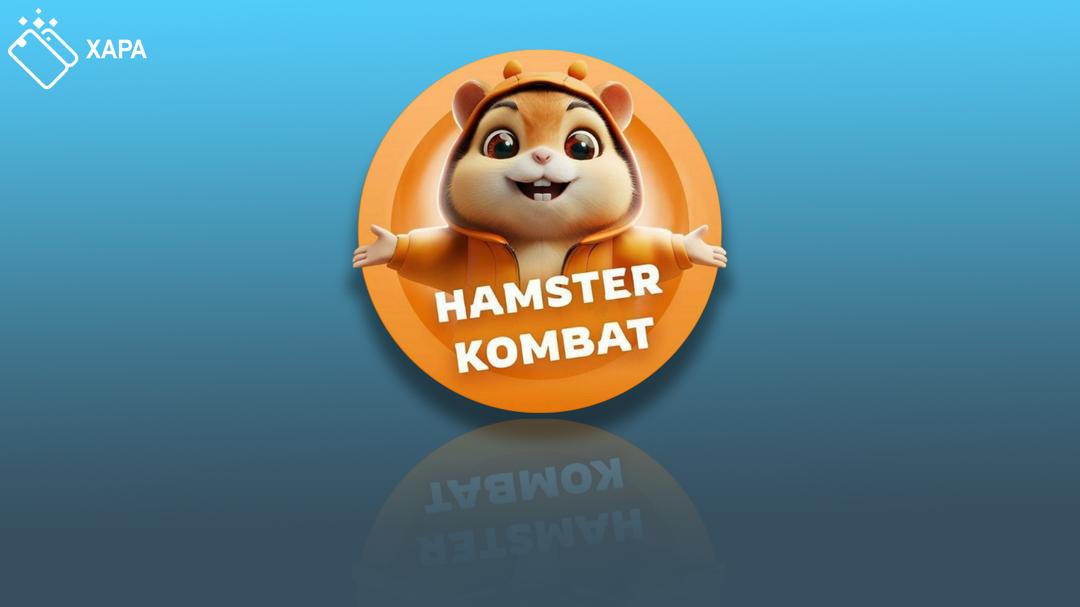
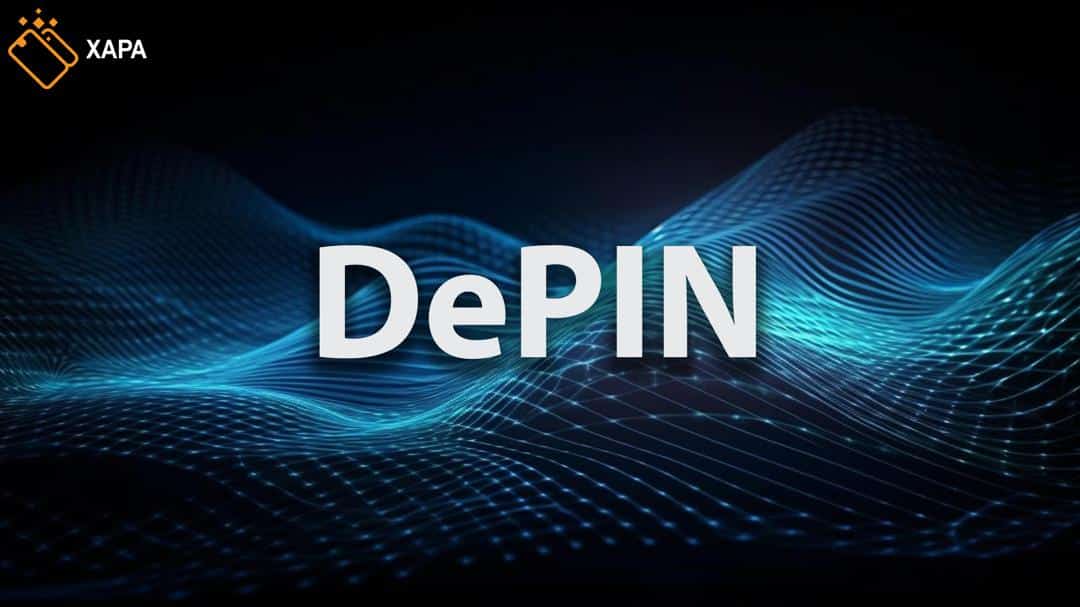
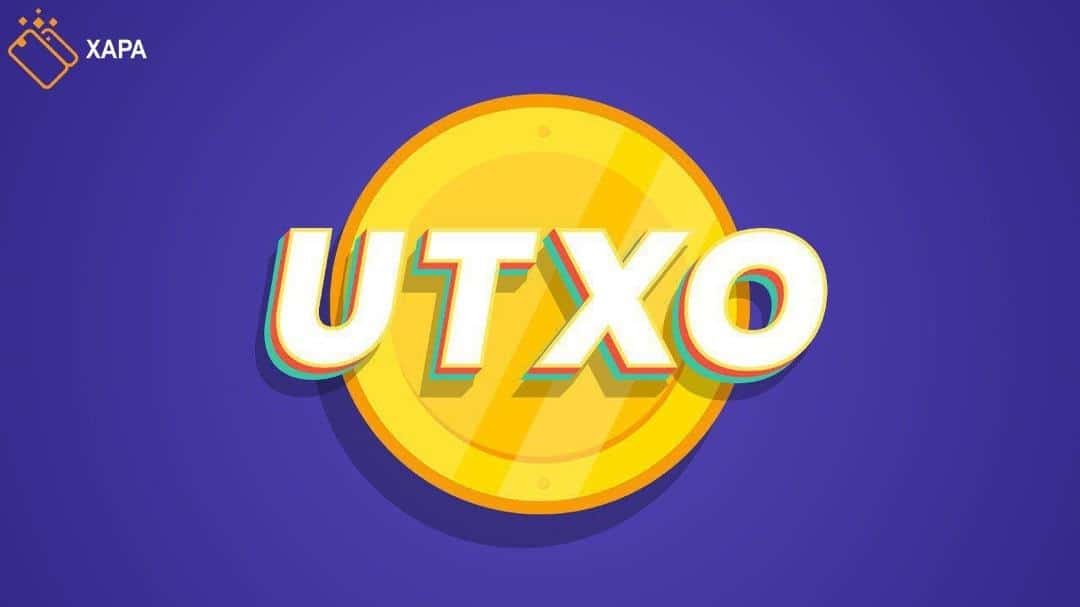

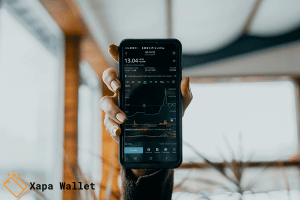
JordanRah
Luxury timepieces have long been synonymous with precision. Meticulously designed by world-class brands, they combine classic techniques with cutting-edge engineering.
Every component demonstrate superior quality, from intricate mechanisms to luxurious finishes.
Investing in a Swiss watch is more than a way to check the hour. It stands for refined taste and heritage craftsmanship.
Be it a classic design, Swiss watches deliver remarkable reliability that stands the test of time.
https://forum.investicnigramotnost.cz/viewtopic.php?f=12&t=634&p=23091#p23091
JordanRah
Luxury timepieces have long been a gold standard in horology. Meticulously designed by renowned artisans, they seamlessly blend tradition with innovation.
Every component reflect exceptional workmanship, from precision-engineered calibers to premium elements.
Owning a Swiss watch is a true statement of status. It stands for refined taste and exceptional durability.
Be it a classic design, Swiss watches deliver remarkable reliability that stands the test of time.
https://www.bookup.com/forum/viewtopic.php?f=6&t=115265
bs2best.gdn
Теневой интернет — это анонимная часть интернета, куда открывается доступ исключительно через защищенные браузеры, например, через Freenet.
В этой среде размещаются законные , например, магазины и различные площадки.
Одной из таких торговых площадок была Black Sprut, данный ресурс занималась торговле разнообразной продукции.
bs2best
Подобные сайты нередко работают через анонимные платежи в целях конфиденциальности сделок.
Тем не менее, власти время от времени закрывают крупные даркнет-площадки, хотя взамен появляются альтернативные площадки.
JasonCOB
Our store provides a wide range of trusted pharmaceutical products for various needs.
This website ensures quick and reliable delivery to your location.
Every item is supplied by certified pharmaceutical companies so you get effectiveness and reliability.
You can explore our catalog and make a purchase in minutes.
If you have questions, Pharmacy experts will guide you whenever you need.
Stay healthy with reliable e-pharmacy!
https://www.apsense.com/article/842066-tadacip-20mg-reviews-what-1-274-real-users-say-anonymous-data.html
добровольная сертификация
Оформление сертификатов в России по-прежнему считается ключевым этапом обеспечения безопасности товаров.
Этот процесс гарантирует полное соответствие техническим регламентам и законам, что защищает потребителей от некачественных товаров.
добровольная сертификация
К тому же, наличие сертификатов способствует сотрудничество с крупными ритейлерами и повышает конкурентные преимущества для бизнеса.
При отсутствии сертификатов, возможны юридические риски и барьеры при продаже товаров.
Вот почему, оформление документации не только требованием законодательства, но и важным фактором устойчивого роста компании на отечественном рынке.
GeorgeJuire
Even with the popularity of modern wearable tech, mechanical watches remain everlasting.
A lot of enthusiasts value the craftsmanship behind mechanical watches.
Unlike digital alternatives, which become outdated, mechanical watches remain prestigious for decades.
http://gamesection.free.fr/phpbb/viewtopic.php?f=2&t=9647
Luxury brands still produce new mechanical models, confirming that demand for them hasn’t faded.
To a lot of people, an automatic timepiece is not just a way to tell time, but a reflection of craftsmanship.
While smartwatches come with modern tech, traditional timepieces represent an art form that stands the test of time.
b2best.at
Чем интересен BlackSprut?
Сервис BlackSprut привлекает внимание многих пользователей. В чем его особенности?
Данный ресурс предлагает широкие опции для аудитории. Интерфейс платформы отличается простотой, что позволяет ей быть интуитивно удобной даже для тех, кто впервые сталкивается с подобными сервисами.
Стоит учитывать, что этот ресурс имеет свои особенности, которые отличают его в определенной среде.
Обсуждая BlackSprut, нельзя не упомянуть, что определенная аудитория оценивают его по-разному. Многие подчеркивают его функциональность, а некоторые относятся к нему более критично.
Подводя итоги, данный сервис остается предметом обсуждений и удерживает внимание разных слоев интернет-сообщества.
Где найти работающий линк на BlackSprut?
Если ищете актуальный домен BlackSprut, то вы по адресу.
https://bs2best
Сайт может меняться, поэтому важно знать обновленный линк.
Мы следим за изменениями и готовы предоставить новым зеркалом.
Проверьте актуальную ссылку у нас!
bs2best
Что такое BlackSprut?
Сервис BlackSprut вызывает интерес разных сообществ. Что делает его уникальным?
Данный ресурс предлагает интересные опции для тех, кто им интересуется. Оформление сайта выделяется простотой, что делает платформу интуитивно удобной без сложного обучения.
Стоит учитывать, что этот ресурс имеет свои особенности, которые формируют его имидж в определенной среде.
При рассмотрении BlackSprut важно учитывать, что многие пользователи оценивают его по-разному. Некоторые отмечают его функциональность, а кто-то относятся к нему более критично.
Таким образом, данный сервис остается темой дискуссий и вызывает внимание разных пользователей.
Ищете актуальное зеркало BlackSprut?
Хотите найти актуальное ссылку на BlackSprut? Это можно сделать здесь.
bs2best at
Периодически платформа перемещается, поэтому приходится искать актуальное ссылку.
Обновленный адрес всегда можно найти здесь.
Посмотрите актуальную ссылку у нас!
1xbet казино слоты
На этом сайте вы можете наслаждаться широким ассортиментом игровых автоматов.
Эти слоты славятся красочной графикой и увлекательным игровым процессом.
Каждый игровой автомат предоставляет уникальные бонусные раунды, увеличивающие шансы на выигрыш.
1xbet игровые автоматы
Игра в слоты подходит игроков всех уровней.
Есть возможность воспользоваться демо-режимом, а затем перейти к игре на реальные деньги.
Проверьте свою удачу и получите удовольствие от яркого мира слотов.
JonahCow
На этом сайте вы можете играть в обширной коллекцией слотов.
Игровые автоматы характеризуются красочной графикой и увлекательным игровым процессом.
Каждый игровой автомат предоставляет особые бонусные возможности, увеличивающие шансы на выигрыш.
1win
Слоты созданы для любителей азартных игр всех мастей.
Можно опробовать игру без ставки, и потом испытать азарт игры на реальные ставки.
Проверьте свою удачу и получите удовольствие от яркого мира слотов.
www.clocksforlife.com
This website offers a great variety of decorative wall-mounted clocks for every room.
You can explore urban and classic styles to enhance your home.
Each piece is curated for its craftsmanship and reliable performance.
Whether you’re decorating a stylish living room, there’s always a matching clock waiting for you.
rocketship projection alarm clocks
The shop is regularly updated with fresh designs.
We ensure customer satisfaction, so your order is always in good care.
Start your journey to timeless elegance with just a few clicks.
Робота з ризиком
На этом сайте предлагает поиска занятости в разных регионах.
Здесь вы найдете свежие вакансии от проверенных работодателей.
На платформе появляются предложения в разных отраслях.
Частичная занятость — выбор за вами.
Работа для киллера Украина
Навигация интуитивно понятен и адаптирован на новичков и специалистов.
Начало работы очень простое.
Готовы к новым возможностям? — заходите и выбирайте.
play casino
On this platform, you can discover lots of slot machines from famous studios.
Users can enjoy classic slots as well as modern video slots with vivid animation and interactive gameplay.
If you’re just starting out or a seasoned gamer, there’s always a slot to match your mood.
play aviator
The games are instantly accessible round the clock and designed for desktop computers and mobile devices alike.
You don’t need to install anything, so you can get started without hassle.
The interface is user-friendly, making it convenient to find your favorite slot.
Join the fun, and dive into the world of online slots!
my-articles-online.com
Данный ресурс дает возможность поиска занятости по всей стране.
Пользователям доступны множество позиций от уверенных партнеров.
Сервис собирает варианты занятости по разным направлениям.
Частичная занятость — вы выбираете.
Как стать киллером
Интерфейс сайта легко осваивается и подстроен на любой уровень опыта.
Создание профиля очень простое.
Готовы к новым возможностям? — заходите и выбирайте.
casino slots
This website, you can discover a great variety of casino slots from famous studios.
Players can try out traditional machines as well as new-generation slots with vivid animation and interactive gameplay.
Even if you’re new or an experienced player, there’s always a slot to match your mood.
casino slots
Each title are available anytime and compatible with laptops and tablets alike.
All games run in your browser, so you can start playing instantly.
Site navigation is intuitive, making it quick to explore new games.
Join the fun, and enjoy the thrill of casino games!
money casino
On this platform, you can find a wide selection of slot machines from top providers.
Visitors can experience classic slots as well as new-generation slots with vivid animation and exciting features.
Whether you’re a beginner or a seasoned gamer, there’s always a slot to match your mood.
casino games
Each title are ready to play round the clock and compatible with laptops and tablets alike.
No download is required, so you can start playing instantly.
The interface is intuitive, making it convenient to browse the collection.
Join the fun, and enjoy the excitement of spinning reels!
slot casino
On this platform, you can discover lots of slot machines from famous studios.
Players can try out traditional machines as well as feature-packed games with stunning graphics and interactive gameplay.
If you’re just starting out or a casino enthusiast, there’s always a slot to match your mood.
money casino
Each title are available anytime and optimized for PCs and tablets alike.
All games run in your browser, so you can jump into the action right away.
Site navigation is user-friendly, making it convenient to explore new games.
Join the fun, and discover the excitement of spinning reels!
е осаго
Наличие медицинской страховки во время путешествия — это разумное решение для защиты здоровья туриста.
Страховка покрывает неотложную помощь в случае заболевания за границей.
Также, сертификат может включать покрытие расходов на репатриацию.
ипотечное страхование
Многие страны предусматривают предъявление страховки для въезда.
Если нет страховки госпитализация могут привести к большим затратам.
Получение сертификата заблаговременно
ordina omicidio l'uccisione
Questa pagina permette la selezione di professionisti per incarichi rischiosi.
Chi cerca aiuto possono ingaggiare operatori competenti per incarichi occasionali.
Tutti i lavoratori vengono scelti con severi controlli.
sonsofanarchy-italia.com
Attraverso il portale è possibile visualizzare profili prima di procedere.
La fiducia resta un nostro impegno.
Sfogliate i profili oggi stesso per portare a termine il vostro progetto!
casino games
On this platform, you can find lots of slot machines from top providers.
Visitors can experience retro-style games as well as modern video slots with vivid animation and exciting features.
Even if you’re new or an experienced player, there’s something for everyone.
casino slots
All slot machines are ready to play anytime and optimized for laptops and smartphones alike.
You don’t need to install anything, so you can start playing instantly.
The interface is easy to use, making it simple to browse the collection.
Join the fun, and dive into the world of online slots!
order a killer
Looking for a person to handle a single hazardous task?
Our platform focuses on connecting clients with freelancers who are willing to tackle high-stakes jobs.
Whether you’re handling emergency repairs, unsafe cleanups, or risky installations, you’re at the perfect place.
Every available professional is vetted and qualified to guarantee your security.
hitman for hire
This service provide transparent pricing, comprehensive profiles, and secure payment methods.
Regardless of how challenging the situation, our network has the expertise to get it done.
Start your quest today and locate the perfect candidate for your needs.
how to become a hacker
Here important data about how to become a security expert.
Facts are conveyed in a unambiguous and clear-cut manner.
You may acquire multiple methods for accessing restricted areas.
Besides, there are specific samples that show how to utilize these expertise.
how to learn hacking
Whole material is persistently upgraded to keep up with the recent advancements in cybersecurity.
Distinct concentration is given to functional usage of the acquired knowledge.
Keep in mind that each maneuver should be applied lawfully and within legal boundaries only.
StevenDor
This site you can stumble upon exclusive coupons for one of the leading betting services.
The assortment of enticing deals is constantly renewed to confirm that you always have access to the fresh offers.
With these special offers, you can reduce expenses on your betting endeavors and enhance your possibilities of accomplishment.
All promo codes are diligently inspected for correctness and effectiveness before being listed.
https://www.taylorrobinsonmusic.com/dwolla/articles/?prikorm_grudnogo_rebenka_kak_perevesti_na_obschiy_stol_sovety_molodym_roditelyam.html
Plus, we furnish thorough explanations on how to utilize each rewarding chance to maximize your benefits.
Bear in mind that some promotions may have distinct clauses or expiration dates, so it’s paramount to examine thoroughly all the aspects before implementing them.
WileyDeelT
Here is possible to discover valuable special offers for 1x betting.
These promocodes give access to get additional incentives when participating on the website.
All available promotional codes are periodically verified to confirm their effectiveness.
Using these promocodes there is an opportunity to boost your chances on the gaming site.
https://aresti-realestate.com/pages/osteregaytesyminima.html
Plus, detailed instructions on how to use promo deals are offered for maximum efficiency.
Remember that particular bonuses may have time limits, so look into conditions before applying.
threesome selfie
Hello to our platform, where you can access special content created specifically for grown-ups.
The entire collection available here is appropriate for individuals who are 18 years old or above.
Please confirm that you meet the age requirement before exploring further.
teen videos
Experience a special selection of adult-only materials, and immerse yourself today!
MichealSnapy
This website offers many types of pharmaceuticals for easy access.
Customers are able to securely access needed prescriptions from anywhere.
Our inventory includes everyday drugs and custom orders.
Everything is sourced from verified distributors.
can you take cialis and viagra together
We ensure quality and care, with private checkout and fast shipping.
Whether you’re filling a prescription, you’ll find trusted options here.
Explore our selection today and enjoy reliable healthcare delivery.
MichealSnapy
Our platform makes available many types of prescription drugs for home delivery.
Users can quickly order needed prescriptions from your device.
Our product list includes standard treatments and targeted therapies.
Everything is acquired via trusted suppliers.
fildena 100 mg side effects
We prioritize quality and care, with private checkout and timely service.
Whether you’re looking for daily supplements, you’ll find trusted options here.
Start your order today and experience convenient access to medicine.
WileyDeelT
1xBet stands as a leading sports betting platform.
Offering an extensive selection of events, One X Bet serves millions worldwide.
The One X Bet app is designed intended for Android as well as Apple devices players.
https://i-on.in/wp-content/pgs/?blighe_k_mame.html
You can install the application via the official website or Google’s store for Android.
Apple device owners, the application can be installed through the App Store without hassle.
EdwardTroma
1xBet Promo Code – Exclusive Bonus up to $130
Enter the 1XBet promo code: 1XBRO200 during sign-up via the application to unlock exclusive rewards given by 1XBet for a €130 as much as a full hundred percent, for wagering and a casino bonus including free spin package. Open the app then continue with the registration procedure.
This 1xBet promotional code: 1XBRO200 provides a fantastic sign-up bonus for new users — full one hundred percent up to 130 Euros once you register. Promotional codes serve as the key for accessing rewards, and 1XBet’s promotional codes aren’t different. After entering the code, users may benefit from multiple deals in various phases of their betting experience. Although you don’t qualify for the initial offer, 1XBet India ensures its loyal users are rewarded with frequent promotions. Look at the Deals tab on their website frequently to keep informed regarding recent promotions meant for current users.
https://dentistry.dentalclinicuk.com/choosing-the-charles-herbert-best-net-excogitation-2021-3806306531746755161
Which 1XBet bonus code is currently active right now?
The promotional code for 1xBet equals 1xbro200, which allows novice players joining the bookmaker to access a bonus of $130. In order to unlock exclusive bonuses for casino and sports betting, kindly enter our bonus code for 1XBET in the registration form. To take advantage of such a promotion, prospective users should enter the promo code 1xbet at the time of registering step so they can obtain a 100% bonus applied to the opening contribution.
Jamesber
На этом сайте представлены свежие бонусы Melbet-промо.
Воспользуйтесь ими во время создания аккаунта на платформе для получения максимальную награду за первое пополнение.
Плюс ко всему, можно найти бонусы в рамках действующих программ игроков со стажем.
melbet промокод на ставку
Проверяйте регулярно в разделе промокодов, не пропустив особые условия от Melbet.
Любой код тестируется на актуальность, поэтому вы можете быть уверены в процессе применения.
baba op 1xbet promo code
One X Bet Promotional Code – Special Bonus up to 130 Euros
Use the 1xBet promotional code: Code 1XBRO200 when registering on the app to access exclusive rewards provided by 1xBet and get welcome bonus as much as 100%, for sports betting and a $1950 featuring one hundred fifty free spins. Start the app and proceed by completing the registration process.
The 1xBet bonus code: Code 1XBRO200 gives a fantastic sign-up bonus to new players — 100% maximum of €130 during sign-up. Promotional codes serve as the key to unlocking rewards, plus 1XBet’s promotional codes are no exception. By using such a code, bettors can take advantage from multiple deals in various phases of their betting experience. Even if you aren’t entitled for the initial offer, 1xBet India ensures its loyal users receive gifts with frequent promotions. Visit the Offers page via their platform often to keep informed regarding recent promotions designed for loyal customers.
1xbet free promo code india
Which 1XBet promo code is currently active today?
The bonus code applicable to 1XBet equals 1xbro200, permitting first-time users joining the gambling provider to unlock a bonus amounting to $130. In order to unlock unique offers pertaining to gaming and wagering, kindly enter the promotional code for 1XBET in the registration form. To take advantage from this deal, future players should enter the promotional code 1XBET during the registration step so they can obtain double their deposit amount for their first payment.
секс чат трансы
В данной платформе доступны интерактивные видео сессии.
Вам нужны дружеское общение деловые встречи, здесь есть решения для каждого.
Этот инструмент разработана для связи людей из разных уголков планеты.
веб чат порно
За счет четких изображений плюс отличному аудио, любое общение остается живым.
Подключиться к публичным комнатам или начать личный диалог, опираясь на ваших потребностей.
Единственное условие — надежная сеть и совместимое устройство, и вы сможете подключиться.
sweet bonanza
This website, you can discover lots of slot machines from famous studios.
Players can experience traditional machines as well as feature-packed games with stunning graphics and exciting features.
Whether you’re a beginner or an experienced player, there’s a game that fits your style.
play aviator
The games are ready to play anytime and optimized for PCs and mobile devices alike.
All games run in your browser, so you can start playing instantly.
Platform layout is user-friendly, making it simple to browse the collection.
Register now, and enjoy the excitement of spinning reels!
download aviator game
The Aviator Game blends exploration with big wins.
Jump into the cockpit and try your luck through cloudy adventures for massive payouts.
With its vintage-inspired design, the game evokes the spirit of early aviation.
https://www.linkedin.com/posts/robin-kh-150138202_aviator-game-download-activity-7295792143506321408-81HD/
Watch as the plane takes off – withdraw before it disappears to lock in your winnings.
Featuring instant gameplay and realistic background music, it’s a must-try for slot enthusiasts.
Whether you’re chasing wins, Aviator delivers endless action with every spin.
黄色书刊
本站 提供 多样的 成人材料,满足 成年访客 的 需求。
无论您喜欢 哪种类型 的 视频,这里都 种类齐全。
所有 资源 都经过 精心筛选,确保 高质量 的 视觉享受。
色情照片
我们支持 不同平台 访问,包括 平板,随时随地 自由浏览。
加入我们,探索 无限精彩 的 私密乐趣。
pin-up
On this site, explore an extensive selection of online casinos.
Whether you’re looking for traditional options latest releases, you’ll find an option for every player.
All featured casinos are verified for trustworthiness, enabling gamers to bet securely.
pin-up
What’s more, this resource provides special rewards plus incentives to welcome beginners as well as regulars.
With easy navigation, discovering a suitable site happens in no time, saving you time.
Stay updated on recent updates by visiting frequently, since new casinos come on board often.
Как украсть данные карты
Здесь вы найдете взрослый контент.
Контент подходит для совершеннолетних.
У нас собраны широкий выбор контента.
Платформа предлагает четкие фото.
онлайн порно инцест
Вход разрешен только для взрослых.
Наслаждайтесь простым поиском.
DanielAroca
Модные образы для торжеств нынешнего года отличаются разнообразием.
Актуальны кружевные рукава и корсеты из полупрозрачных тканей.
Детали из люрекса делают платье запоминающимся.
Асимметричные силуэты определяют современные тренды.
Минималистичные силуэты придают пикантности образу.
Ищите вдохновение в новых коллекциях — детали и фактуры превратят вас в звезду вечера!
https://nonghuachang-sao.go.th/forum/suggestion-box/405918-dni-sv-d-bni-br-zi-s-ic-s-s-v-i-p-vib-ru
DanielAroca
Модные образы для торжеств 2025 года задают новые стандарты.
Актуальны кружевные рукава и корсеты из полупрозрачных тканей.
Детали из люрекса придают образу роскоши.
Асимметричные силуэты становятся хитами сезона.
Особый акцент на открытые плечи подчеркивают элегантность.
Ищите вдохновение в новых коллекциях — стиль и качество сделают ваш образ идеальным!
https://busybrainsphonics.com/forums/topic/order-kytril-now-kytril-buy-eu/page/4/#post-8263
Davidbib
¿Buscas códigos promocionales recientes de 1xBet? En nuestra plataforma encontrarás bonificaciones únicas para tus jugadas.
La clave 1x_12121 ofrece a 6500 RUB durante el registro .
También , canjea 1XRUN200 y obtén una oferta exclusiva de €1500 + 150 giros gratis.
https://elovebook.com/read-blog/44405
Mantente atento las ofertas diarias para acumular recompensas adicionales .
Las ofertas disponibles son verificados para esta semana.
Actúa ahora y maximiza tus apuestas con esta plataforma confiable!
glazboga.net
Прямо здесь доступен Telegram-бот “Глаз Бога”, позволяющий проверить всю информацию о человеке через открытые базы.
Бот работает по ФИО, обрабатывая доступные данные в Рунете. Благодаря ему доступны 5 бесплатных проверок и глубокий сбор по имени.
Платформа обновлен на август 2024 и охватывает фото и видео. Сервис гарантирует найти профили в соцсетях и отобразит сведения в режиме реального времени.
https://glazboga.net/
Это сервис — идеальное решение в анализе граждан удаленно.
AllenSelay
Здесь доступен Telegram-бот “Глаз Бога”, что найти сведения о гражданине через открытые базы.
Бот функционирует по ФИО, анализируя актуальные базы в сети. Через бота осуществляется 5 бесплатных проверок и полный отчет по запросу.
Платформа актуален согласно последним данным и поддерживает аудио-материалы. Глаз Бога сможет проверить личность в открытых базах и отобразит сведения мгновенно.
https://glazboga.net/
Такой бот — идеальное решение при поиске персон удаленно.
Jerryket
На данном сайте вы можете получить доступ к последними новостями страны и зарубежья .
Данные актуализируются в режиме реального времени .
Представлены фоторепортажи с ключевых точек.
Мнения журналистов помогут глубже изучить тему .
Все материалы доступны в режиме онлайн.
https://mskfirst.ru
Davidmaimi
Searching for latest 1xBet promo codes? This site offers verified bonus codes like GIFT25 for new users in 2025. Claim up to 32,500 RUB as a welcome bonus.
Activate trusted promo codes during registration to boost your rewards. Enjoy risk-free bets and special promotions tailored for sports betting.
Find daily updated codes for 1xBet Kazakhstan with fast withdrawals.
Every voucher is tested for validity.
Don’t miss limited-time offers like 1x_12121 to increase winnings.
Valid for new accounts only.
https://lottiefiles.com/p/aomlisrts-workspace/1xbet-promo-code-pakistan
Experience smooth benefits with easy redemption.
Peterdyemo
Die Royal Oak 16202ST kombiniert ein rostfreies Stahlgehäuse von 39 mm mit einem extraflachen Gehäuse von nur 8,1 mm Dicke.
Ihr Herzstück bildet das automatische Manufakturwerk 7121 mit erweitertem Energievorrat.
Der blaue „Bleu Nuit“-Ton des Zifferblatts wird durch das Petite-Tapisserie-Muster und die kratzfeste Saphirscheibe mit blendschutzbeschichteter Oberfläche betont.
Neben klassischer Zeitmessung bietet die Uhr ein Datumsfenster bei 3 Uhr.
ap 15407
Die 50-Meter-Wasserdichte macht sie alltagstauglich.
Das integrierte Edelstahlarmband mit verstellbarem Dornschließe und die oktogonale Lünette zitieren das ikonische Royal-Oak-Erbe aus den 1970er Jahren.
Als Teil der legendären Extra-Thin-Reihe verkörpert die 16202ST horlogerie-Tradition mit einem Wertanlage für Sammler.
Приобрести часы Patek Philippe Nautilus в бутике
Коллекция Nautilus, созданная Жеральдом Гентой, сочетает элегантность и высокое часовое мастерство. Модель Nautilus 5711 с самозаводящимся механизмом имеет 45-часовой запас хода и корпус из белого золота.
Восьмиугольный безель с округлыми гранями и циферблат с градиентом от синего к черному подчеркивают уникальность модели. Браслет с интегрированными звеньями обеспечивает удобную посадку даже при активном образе жизни.
Часы оснащены функцией даты в позиции 3 часа и антибликовым покрытием.
Для сложных модификаций доступны секундомер, вечный календарь и функция Travel Time.
patek-philippe-nautilus.ru
Например, модель 5712/1R-001 из розового золота с калибром повышенной сложности и запасом хода до 48 часов.
Nautilus остается символом статуса, объединяя инновации и традиции швейцарского часового дела.
Geraldsip
Betting is becoming an exciting way to add excitement to your gaming journey. Placing wagers on tennis, our platform offers exceptional value for all players.
From live betting to pre-match options, you can find a wide variety of gambling options tailored to your preferences. The easy-to-use design ensures that making wagers is both effortless and secure.
https://gazetablic.com/new/?easybet_south_africa___sports_betting__casino___free_r50_bonus.html
Join now to experience the best betting experience available digitally.
глаз бога по номеру
Прямо здесь можно получить мессенджер-бот “Глаз Бога”, который собрать всю информацию по человеку через открытые базы.
Инструмент активно ищет по фото, используя публичные материалы онлайн. С его помощью осуществляется бесплатный поиск и детальный анализ по запросу.
Платфор ма обновлен согласно последним данным и поддерживает фото и видео. Глаз Бога поможет проверить личность по госреестрам и предоставит результаты в режиме реального времени.
глаз бога поиск по фото
Такой сервис — помощник для проверки персон онлайн.
программа глаз бога для поиска людей
На данном сайте можно получить Telegram-бот “Глаз Бога”, который найти данные о гражданине по публичным данным.
Бот функционирует по фото, анализируя доступные данные в Рунете. Благодаря ему осуществляется бесплатный поиск и детальный анализ по фото.
Платфор ма проверен на август 2024 и включает фото и видео. Сервис сможет проверить личность по госреестрам и покажет информацию за секунды.
глаз бога телеграмм канал
Это сервис — помощник для проверки граждан через Telegram.
глаз бога программа для поиска
На данном сайте вы найдете сервис “Глаз Бога”, который собрать всю информацию о гражданине через открытые базы.
Инструмент активно ищет по фото, анализируя публичные материалы в Рунете. Через бота можно получить пять пробивов и полный отчет по запросу.
Платфор ма проверен согласно последним данным и поддерживает фото и видео. Бот поможет узнать данные в соцсетях и предоставит результаты за секунды.
глаз бога бот телеграм бесплатно
Такой инструмент — помощник при поиске граждан удаленно.
RobertDaw
Хотите собрать данные о человеке ? Этот бот поможет полный профиль мгновенно.
Воспользуйтесь уникальные алгоритмы для поиска цифровых следов в открытых источниках.
Выясните контактные данные или активность через автоматизированный скан с верификацией результатов.
пробить через глаз бога
Система функционирует с соблюдением GDPR, используя только открытые данные .
Получите расширенный отчет с историей аккаунтов и списком связей.
Попробуйте проверенному решению для digital-расследований — результаты вас удивят !
RichardOvash
Подбирая компании для квартирного перевозки важно проверять её лицензирование и репутацию на рынке.
Проверьте отзывы клиентов или рейтинги в интернете, чтобы оценить надёжность исполнителя.
Уточните стоимость услуг, учитывая расстояние перевозки , сезонность и дополнительные опции .
https://bka.forum24.ru/?1-13-0-00000054-000-0-0-1745437604
Убедитесь наличия гарантий сохранности имущества и запросите детали компенсации в случае повреждений.
Обратите внимание уровень сервиса: оперативность ответов, гибкость графика .
Проверьте, есть ли специализированные грузчики и упаковочные материалы для безопасной транспортировки.
Jerrykag
Back then, I believed medicine was straightforward. The pharmacy hands it over — nobody asks “what’s really happening?”. It felt safe. Then cracks began to show.
First came the fatigue. I told myself “this is normal”. Still, my body kept rejecting the idea. I searched forums. The warnings were there — just buried in jargon.
vidalista 20 dosage
That’s when I understood: health isn’t passive. The same treatment can heal one and harm another. Reactions aren’t always dramatic — just persistent. Still we trust too easily.
Now I pay attention. Not because I don’t trust science. I take health personally now. It makes appointments awkward. This is survival, not stubbornness. The lesson that stuck most, it would be keyword.
Josephmon
Android-пакет является сжатый контейнер, который включает все необходимые ресурсы , такие как графика, аудио, и конфигурационные данные.
Приложения в формате APK запускаются на устройствах с операционной системой Android , обеспечивая доступность для пользователей .
Поддержка зависит от версии процессора : файлы ARMv8 работают только на совместимых моделях.
скачать филворды бесплатно
Использование неофициальных пакетов позволяет к приложениям до релиза , но сопряжена с рисками.
Android-контейнер включает код приложения , медиафайлы и системные инструкции для корректной работы.
Использование формата удобно для тестирования , однако важно проверять источники перед установкой.
Jerrysoata
I once believed medications as essential crutches, relying on them without hesitation whenever my body whispered warnings. However, reality dawned slowly, revealing how these aids often numbed the symptoms, urging a profound introspection into the essence of healing. The shift was visceral, illuminating that respectful use of these tools empowers our innate vitality, rather than eroding our natural strength.
Amid a personal storm, I hesitated before the usual fix, questioning long-held habits that blended self-care with selective support. What emerged was transformative: wellness blooms holistically, excessive reliance breeds fragility. It inspires me daily to advocate for caution, recognizing treatments as enhancers of life.
Peering into the core, I’ve grasped that medical means ought to amplify our spirit, without stealing the spotlight. This odyssey has been enlightening, challenging everyone to ponder entrenched patterns for richer lives. And if I had to sum it all up in one word: tadapox india pharmacy
注册以获取100 USDT
Thanks for sharing. I read many of your blog posts, cool, your blog is very good.